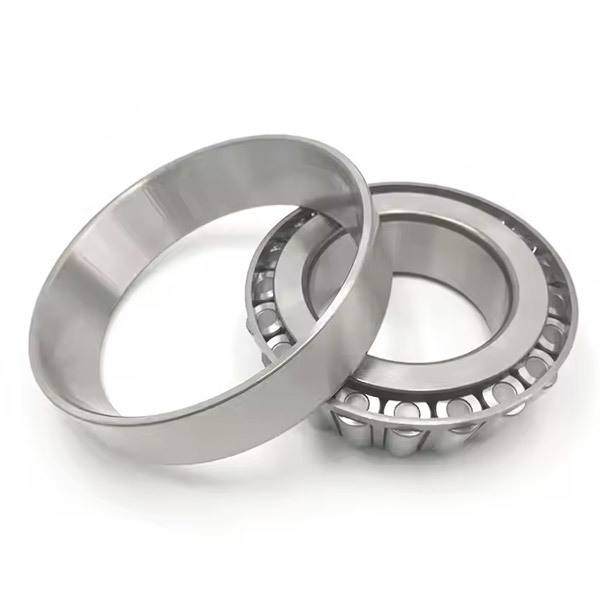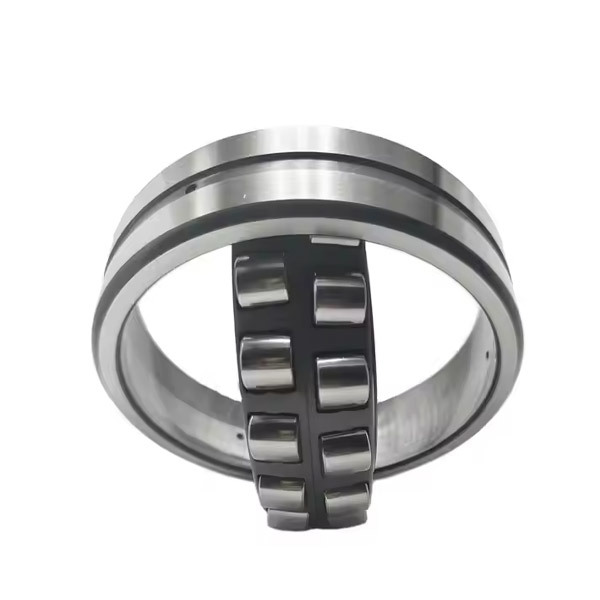12
2025
-
08
Why Choose Tapered Roller Bearings for Your Industrial Equipment?
Introduction to Tapered Roller Bearings In the realm of industrial equipment, the choice of bearing can significantly impact performance, reliability, and maintenance costs. Tapered roller bearings have emerged as a preferred option in various applications, known for their unique design that caters specifically to high load capacities and dynamic performance. This article delves deep into the re
Introduction to Tapered Roller Bearings
In the realm of industrial equipment, the choice of bearing can significantly impact performance, reliability, and maintenance costs. Tapered roller bearings have emerged as a preferred option in various applications, known for their unique design that caters specifically to high load capacities and dynamic performance. This article delves deep into the reasons why you should consider tapered roller bearings for your industrial equipment, highlighting their key features, benefits, and applications.
What Are Tapered Roller Bearings?
Tapered roller bearings consist of an inner race, an outer race, a cage, and tapered rollers. The design enables the rollers to make contact with the races at a point rather than a line, which optimizes load distribution and enhances performance. This design allows tapered roller bearings to handle both radial and axial loads, making them versatile for various machinery applications.
Key Features of Tapered Roller Bearings
Understanding the features of tapered roller bearings can clarify why they are a superior choice for your industrial needs.
1. High Load Capacity
Tapered roller bearings are engineered to support high axial and radial loads. Their tapered design allows for efficient load distribution, which means they can handle heavier loads than many other types of bearings. This feature is particularly beneficial in applications such as construction equipment, mining machinery, and automotive parts where substantial force is present.
2. Enhanced Durability
The materials used in tapered roller bearings contribute to their longevity. Typically constructed from high-quality steel, these bearings can withstand extreme conditions, including high temperatures and corrosive environments. This durability translates to longer service life and reduced replacement costs.
3. Precision Engineering
With their finely-tuned design, tapered roller bearings provide superior performance in applications where precision is critical. The accurate alignment of the rollers within the races minimizes friction and wear, which enhances efficiency and reduces energy consumption.
Benefits of Tapered Roller Bearings for Industrial Equipment
Adopting tapered roller bearings in your industrial applications comes with a host of benefits that can enhance overall performance.
1. Improved Efficiency
The reduction in friction and improved load distribution contributes to better overall efficiency. When machinery operates more smoothly, it consumes less energy, which can significantly lower operational costs.
2. Versatility in Applications
Tapered roller bearings are utilized in a wide range of applications, from heavy-duty industrial machinery to precision equipment. Their flexibility makes them suitable for various industries, including automotive, aerospace, and manufacturing.
3. Easy Installation and Maintenance
Installation and maintenance are straightforward with tapered roller bearings. Many models come with pre-greased options, and their design allows for easy replacement, minimizing downtime during maintenance.
Industry Applications of Tapered Roller Bearings
Tapered roller bearings are employed across various sectors, showcasing their adaptability and performance.
1. Automotive Industry
In the automotive sector, tapered roller bearings are used in wheel hubs, transmissions, and differentials. Their high load capacity and durability make them ideal for withstanding the stresses placed on vehicles.
2. Construction Equipment
Heavy machinery such as excavators and bulldozers rely on tapered roller bearings for their ability to handle significant loads and provide reliable performance under extreme conditions.
3. Mining and Mineral Processing
The harsh environments in mining require bearings that can endure significant wear and tear. Tapered roller bearings are often chosen for their strength and resistance to contaminants, ensuring longevity and reliability.
Factors to Consider When Choosing Tapered Roller Bearings
Selecting the right tapered roller bearing involves several considerations to ensure optimal performance.
1. Load Ratings
It's essential to understand the load requirements of your application. Tapered roller bearings come with various load ratings, and choosing the appropriate one is crucial for ensuring that the bearing can handle the forces it will encounter.
2. Size and Fit
The dimensions of the bearing must correspond to the equipment's specifications. A proper fit is vital for performance and will help prevent premature wear or failure.
3. Operating Environment
Consider the environment in which the bearings will operate. In high-temperature or corrosive settings, select bearings made from materials designed to withstand such conditions.
Cost-Effectiveness of Tapered Roller Bearings
While tapered roller bearings may have a higher upfront cost than other bearing types, their long-term benefits often outweigh the initial investment.
1. Lower Maintenance Costs
Due to their durability and longevity, tapered roller bearings reduce the frequency of replacements and maintenance, leading to lower overall costs in the long run.
2. Enhanced Performance Reduces Downtime
The reliability of tapered roller bearings minimizes unexpected equipment failures, which can be costly in terms of both repair expenses and lost productivity.
How to Maintain Tapered Roller Bearings
Proper maintenance is key to extending the lifespan of tapered roller bearings. Here are some tips to ensure their optimal performance.
1. Regular Inspection
Conduct periodic inspections to check for signs of wear, damage, or contamination. Early detection can prevent more significant issues down the line.
2. Proper Lubrication
Ensure that bearings are adequately lubricated to minimize friction. Depending on the application and operating conditions, select the right lubricant type and follow the manufacturer's recommendations.
3. Monitor Operating Conditions
Keep an eye on the environmental factors affecting the bearings. Excessive heat, vibration, or contamination can lead to premature failure, so it's essential to maintain optimal operating conditions.
Conclusion
In conclusion, **tapered roller bearings** stand out as a superior choice for industrial equipment due to their remarkable load capacity, durability, and versatility. Their precision engineering not only enhances performance but also contributes to cost savings through improved efficiency and reduced maintenance. By understanding the features and benefits of tapered roller bearings, you can make an informed decision that will enhance the reliability and performance of your machinery. Investing in these high-quality bearings is a strategic move that pays dividends in the long run, ensuring your equipment operates smoothly and efficiently for years to come.
Frequently Asked Questions (FAQs)
1. What are the primary advantages of tapered roller bearings over other types?
Tapered roller bearings offer superior load capacity, enhanced durability, and efficient performance due to their unique design, making them ideal for various industrial applications.
2. How do I know which size of tapered roller bearing to choose?
Selecting the correct size involves understanding the load specifications and dimensions required for your equipment. Always refer to the manufacturer's guidelines.
3. Can tapered roller bearings handle both radial and axial loads?
Yes, tapered roller bearings are specifically designed to accommodate both radial and axial loads, making them versatile for different applications.
4. What maintenance practices are recommended for tapered roller bearings?
Regular inspections, proper lubrication, and monitoring operating conditions are essential for maintaining tapered roller bearings and ensuring their longevity.
5. Are there specific industries where tapered roller bearings are most commonly used?
Tapered roller bearings are widely used in the automotive, construction, and mining industries, among others, due to their high load capacity and durability in demanding environments.
10% DISCOUNT FOR NEW CUSTOMERS

WhatsApp:+8613211157555
Tel: +8613211157555
Address:Room 1106, 11th Floor, No. 23, Fengshan West Road, Jinbang Community, Daliang Street, Shunde District, Foshan City, Guangdong Province
Copyright 2025 Schaeffler (Guangdong) Transmission Technology Co., Ltd. SEO Business license




